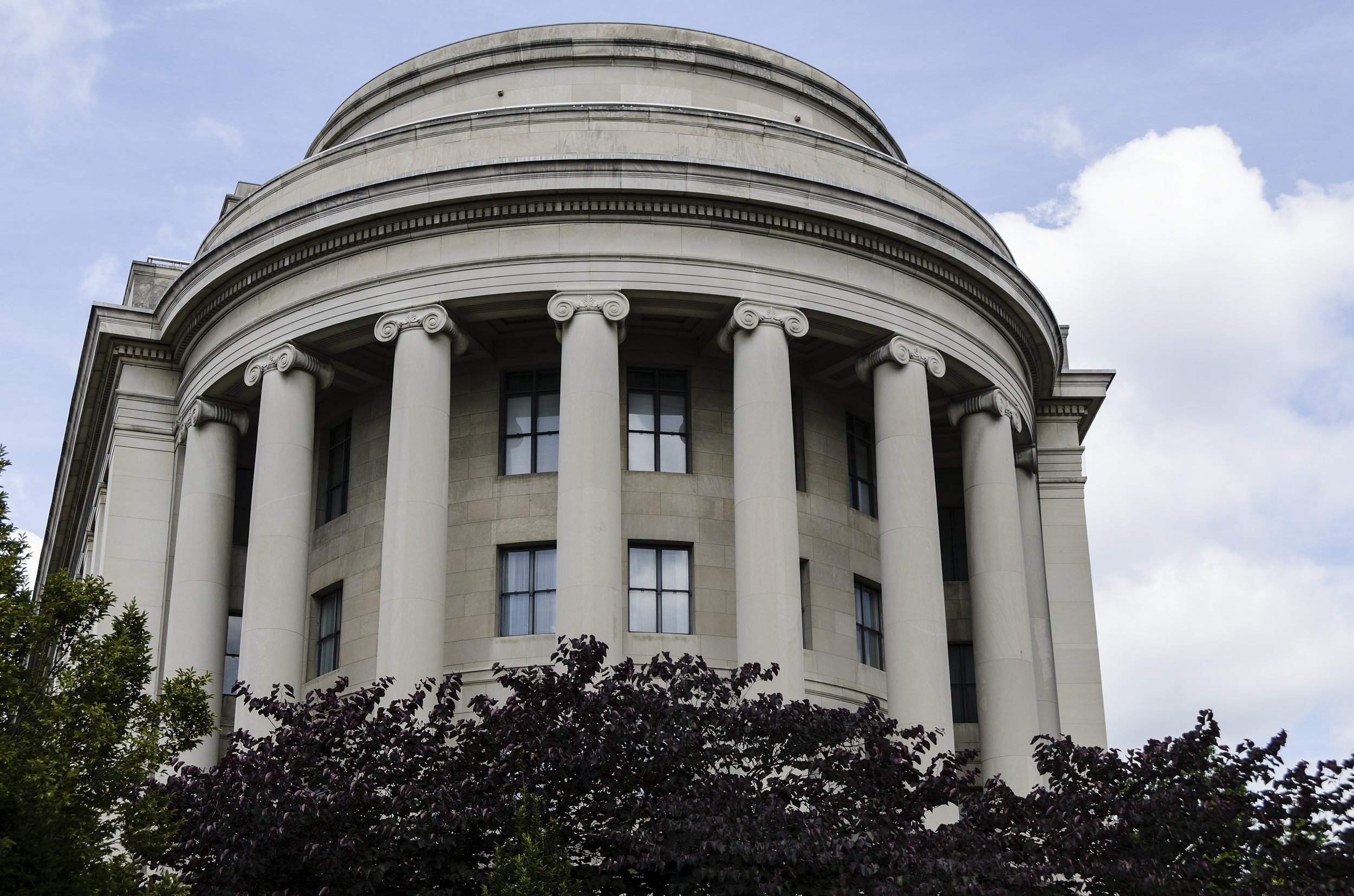
Urging a “No” on H.R. 3843, the "Merger Filing Fee Modernization Act"
The following memo was sent to members of the U.S. House of Representatives and their staff, opposing H.R. 3843, the "Merger Filing Fee Modernization Act."

Letter in Opposition to H.R. 3843, the "Merger Filing Fee Modernization Act"
Please see the following letter from Ashley Baker, Robert H. Bork Jr., James Edwards, and Curt Levey in opposition to H.R. 3843…

Coalition Letter: Request for Investigation of the FTC’s Practice of Counting “Zombie Votes”
Using the votes of Commissioners who have departed from their roles at the FTC and concealing it from the public raises serious concerns regarding transparency and accountability. We therefore seek an investigation to determine the following: 1.) the legal basis for this practice, beyond compliance with internal voting rules; 2.) whether the practice has previously been used, when it was used, and, specifically, if it has been used to break ties; and 3.) information relating to each of the underlying proposals, votes, and relevant motions as well as the FTC's rationale for concealing these specific matters from public disclosure.

Statement for the Record on Hearing: ‘Transforming the FTC: Legislation to Modernize Consumer Protection’
On July 1, 2021, the Federal Trade Commission (FTC), after allowing six days for public comment, voted to rescind the 2015 Statement of Enforcement Principles Regarding “Unfair Methods of Competition” (UMC) Under Section 5 of the FTC Act. On July 21, 2021, the FTC voted to rescind its bipartisan 1995 Policy Statement on Prior Approval and Prior Notice Provisions in merger cases.
Notably, both of these actions – along with other significant changes – were effected along party lines, with limited opportunity for public input, and without dialogue among the Commissioners. Today’s hearing will consider a wide array of reforms, many of which are relevant to the level of discretion and enforcement principles under FTC Act § 5 and to the broader capabilities and mandate of the Commission.
Comments In Re: Rescission of 1995 FTC Statement on Prior Approval and Prior Notice Provisions
It is troubling that the FTC will be considering a significant shift in policy as the open meeting agenda will include this sudden push to revoke the 1995 statement. Of particular concern is the rejection of the prior approval provision.
With the adoption of the 1995 statement, the Commission accepted the Hart-Scott-Rodino (HSR) Act framework as adequate for handling mergers and thereby determined that prior approval of future acquisitions by a respondent should no longer be required as a routine matter.
The rescission of the 1995 statement is another step in the direction of rejecting the HSR regime which, in the words of Peter W. Rodino, Jr on the 25th anniversary of the Act, “absolutely has transformed merger enforcement. Competition, as well as the consumer, has benefitted.”

Comments In Re: Rescission of 2015 FTC Statement on Unfair Methods of Competition
Abandoning the 2015 statement’s framework would remove important guardrails that established predictability and guidance in enforcement actions. The lack of predictability resulting from the FTC’s re-expanded discretion in invoking broad Section 5 authority on a case-by-case basis would create uncertainty for businesses of all sizes and across all industries. The Commission’s misadventure into UMC expansionism would generate unwarranted confusion, and eventually courts would have to grapple with questions of interpreting the outer boundaries of Section 5 authority that were previously cabined by the 2015 statement.

Comments to the Federal Trade Commission Concerning the July 1, 2021 Open Meeting Agenda
Ultimately, we worry that both reports support proposals that place government bureaucrats at the heart of decisions regarding the way products are designed, how firms compete, and other questions that have been traditionally left to consumers. And through the adoption of these proposals, conservatives risk playing into the regulation-happy hands of progressives.

Statement from Conservatives on HJC Antitrust Proposals
Ultimately, we worry that both reports support proposals that place government bureaucrats at the heart of decisions regarding the way products are designed, how firms compete, and other questions that have been traditionally left to consumers. And through the adoption of these proposals, conservatives risk playing into the regulation-happy hands of progressives.

Statement: Results-Oriented House Antitrust Report Undermines the Law, Harms Consumers
The Alliance on Antitrust strongly disagrees with the recommendations released by the House Judiciary Committee’s Subcommittee on Antitrust, Commercial and Administrative Law in its report, Investigation of Competition in the Digital Marketplace: Majority Staff Report and Recommendations. The report is a radical attempt to undo centuries of legal and economic learning and progress. If the recommendations become law, they would harm American consumers, stifle innovation, and penalize businesses for their successes.

Coalition Update: New Members and Recent Content
We would like to announce the addition of our three newest members: The American Conservative Union, Goldwater Institute, and Consumer Choice Center. Each of these members issued a brief statement.

Statement for the Record on Antitrust, Digital Ad Markets, and the Rule of Law
Today, the Committee for Justice provided a statement for inclusion in the record of the Subcommittee’s September 15th hearing, “Stacking the Tech: Has Google Harmed Competition in Online Advertising?” The letter was submitted by a group of legal experts, economists, and consumer and taxpayer advocates who believe in the importance of promoting competitive markets and defending the rule of law.

Letter for the Record on Antitrust from Conservative and Free Market Leaders
Using antitrust to achieve policy or political goals would upend more than a century of legal and economic learning and progress. The need to bring coherency to antitrust law through a neutral underlying principle that cannot be weaponized is what led to the adoption of the modern consumer welfare standard. It is broad enough to incorporate a wide variety of evidence and shifting economic circumstances but also clear and objective enough to prevent being subjected to the beliefs of courts and enforcers.

